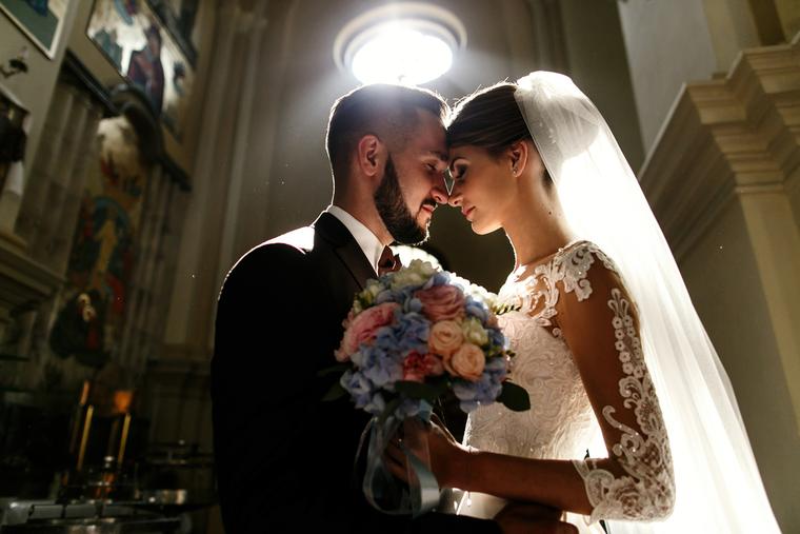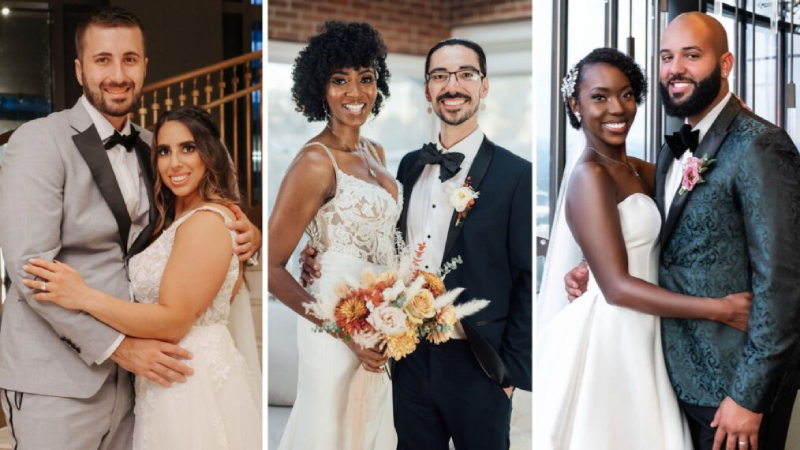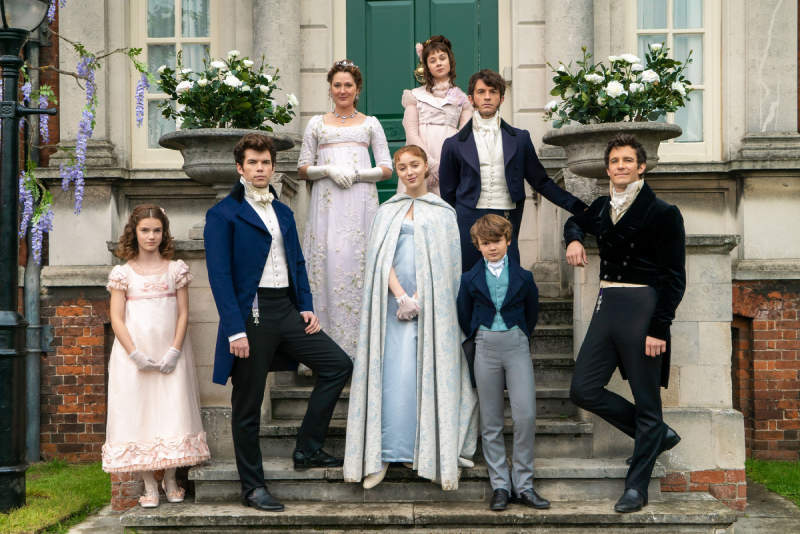For the general masses, being a member of the ‘high society’ or the ‘elites’ means someone to be looked up to. Someone to be admired and be in awe of. However, there also exists the exact opposite stance, in which a high society member is automatically someone to be hated or resented. Both these reactions and perceptions—hatred and awe—stem from the obvious fact that a high society individual has reached social and economic levels superior to us.
In such a case, our expectations of high society individuals also tend to be in accordance with our feelings towards them. Those of us who are in awe, expect the lives—and marriages—of the higher ups to be perfect. In fact, we wish for so. The ‘shipping’ trend that has emerged recently coined by the netizens displays a desire of the general followers of the elite for matches that remain forever happy and fulfilling. Without the term ‘shipping,’ this trend has been present in societies for quite some time.
Conversely, those predisposed to thinking ill of the elite mistrust any happiness or fulfillment displayed by elites—these are the ones termed trolls.
The Teeming Expectations

What causes the high expectations from the elites by the masses—be they positive or negative expectations?
If it be permitted, there is an analogy to be drawn here. The love-hate mix of emotions within the masses for the elites corresponds directly to the love-hate found in the relationship between children and their parents, between students and teachers, i.e., between people of authority or power and those without said power.
The fact that power makes one selfish and greedy is an accepted and known one. However, the fact that people with power automatically mean people with something better than us is often neglected, even though it is ever present in our lives.
It is envy, or desire to be where the elites are, that causes the masses to either loyally hail them or resentfully condemn them. In psychology, this is termed ‘authority bias’, a cognitive predisposition that causes us to be more influenced by them. Its opposite, the antonym of authority bias, is the predisposition to oppose or condemn every action, belief, or position of an authority figure. These biases are quite natural to us.
High Society Marriages

Isn’t it satisfying to witness the two people we shipped end up together or, better yet, get hitched? Of course, it is! Let’s list the various expectations we have of high society marriages.
Expectations of Genuine Relationship Insights
Isn’t it swoon-worthy to get to know what places the new elite couple visits? What vacations they take together, and when they visit each other’s family?
As members of the masses, we wish to know all about the inner details of high society relationships. The media personnel entertain us and ask all the questions we want answered. We take the answers at face value and are glad.
Expectations of Grand Public Proposals and Ceremonies
As hard as we may want to witness it, it is rare for elites to propose publicly. That doesn’t stop us from asking them for it constantly, though, and neither does it deter us from expecting to be able to view their weddings and receptions—preferably live.
Expectations of Couple Interviews
Once the relationship or marriage of an elite is announced, we expect them to give interviews together, work together, appear at all public events together, etc. And when they do conduct interviews and show up at events together, we scrutinize them. We notice each movement, gesture, and even the slightest expression that can reveal to us whether they are truly happy or not.
Expectations of Stating Genuine Opinions
Elites and celebrities are constantly interviewed and asked multiple types of questions. Those who ask these questions never fail to leave out some political, social, or other opinion-based questions.
We all expect high society individuals to be honest about their marriage-related and other opinions. We long to know what our favorite celebrity thinks of marriage, whether it is a necessity, and whether they think same-sex marriages should be legalized or not.
This list wasn’t at all exhaustive and there are many more expectations that could be added, but for now let us move towards the realities of what high society marriages truly are.
The Shocking Realities

When we, even for a second, bring all this into the specific context of our own marriages and relationships, we see that the elites are subjected to much pressure. With the constant talk on the internet, the shipping, the ohs, and ahs, focusing on the actual relationship becomes less a priority than it appearing a happy relationship to the masses does.
We are all aware of differences and issues that arise in a relationship, no matter how strong the bond. But for members of elite society, these minor bumps on the road threaten not just their relationships but their careers as well. If a spat is ever witnessed by the media or the paparazzi, it could possibly ruin their careers as the supporters of one will begin trolling the other. Not to mention the fact that public perception is a big factor in the success of many elites.
We normal people get flustered even when we are told to speak in front of a group. Imagine the state of mind a person must have when they know that the camera facing them is going to show their face and broadcast their views to the whole nation, if not the world.
Relationship Insights
None of us would want the world hounding our marriage and whether it’s going to work. Internet users are so casual and quick to jump to conclusions and spread rumors about divorces and separations. These things might just fuel the fire if there are indeed tensions in the relationship.
Most elites prefer to keep their relationship private, and there are spats and rough patches that they overcome under closed doors. If the matter is beyond control, divorces are filed.
The truth is, sometimes elites marry or pretend to be together just because doing so will promote a movie more or will benefit their business and reach. Elite marriages are not as flowery as we may like to believe. Especially in the case of the big capital owners, they marry their sons and daughters to other businesses that stand to benefit them, or they do it for social standing. Celebrities even fake big fights and divorces to create scandals and to bring themselves back into the media spotlight.
Proposals and Ceremonies

The swoon-worthy and immaculate proposals we see online are not real either. To be fair, such is the case with most people who post on social media, as we tend to only display the beautiful or aesthetic sides of our lives while we weep and suffer the ugly parts on our own. This exactly is the case with elites. Their proposal and marriage shots may look perfect on screen, and the moment might even have been surreal, but no marriage is without a certain level of chaos, even if that marriage is of a member of high society.
As far as grand ceremonies go, they are more often than not held only to appease the general public and to uphold their own high social standing. The tabs we normal people keep on the gifts we gave whom and who gave us what are also maintained by the elites. Of course, theirs has a much higher budget than ours, but the element remains.
Interviews
A person’s attitude and personality in front of a camera and behind the camera are drastically different. Elites know what they must appear to be, and they behave that way in interviews. There are only a few rare ones that you can claim are real, but even then, it is impossible to determine the type of person someone is from interviews or a few clips. The biggest mistake we make is to form opinions about the elite based on nothing but what they deliberately craft and show us.
It is necessary for us to understand that if we are to be influenced by someone, it should be only after we have truly known them or their work. Actors can indeed be admired and taken inspiration from with respect to their acting, sportspersons make great idols for sports enthusiasts. But when we link individuals to things we have no cause to link to, we end up fooling no one but ourselves.
Opinions
These are harder to make out for their truth. We can never truly know if someone, especially a politician, is honest about their opinions and stances or simply goes with what they think will benefit them most.
As it goes, many high society individuals who happen to feature often in the media do so only to gain traction, either for their company or for themselves.
Conclusion
This authority bias that we all have in our systems needs to be gotten rid of. Not with respect to teachers or parents—though it can prove harmful in those cases as well—but in the case of influencers, celebrities, capitalists, or any high society individuals who are paid to sell products or speak certain things.
If we do believe them, let us make sure there is valid cause and reasoning. Let us verify our information and not become blind believers—nor should we become blind haters and disbelievers. That is not the best course either. It just goes to show all the more how much we envy them for their position.
Marriages in high societies are much like our own, but their lifestyle and media interactions do not show that to us. It is a curse that befalls those who possess fame and money, the curse of never being able to display their true selves—at least not to the world.




